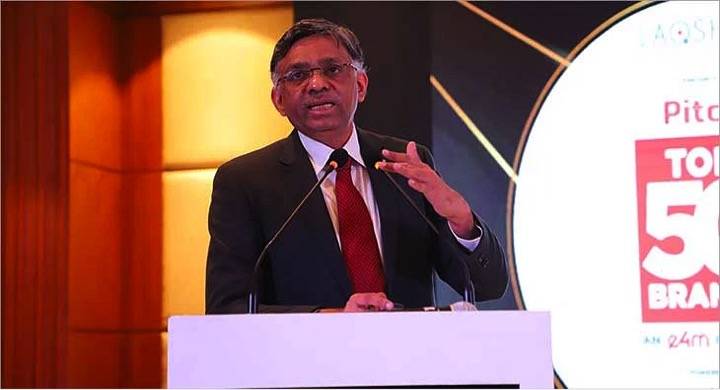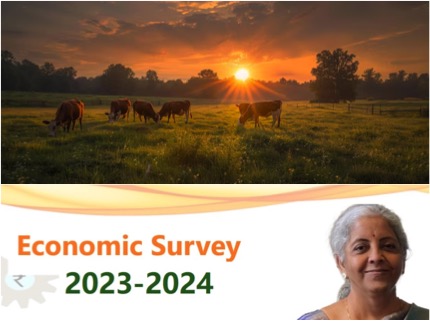The Managing Director of Amul India spoke at the Pitch Brand Talk summit about the brand continuing to stay relevant for the Indian consumer
The Pitch Brand Talk summit held in Delhi on November 22 saw an enviable collective of industry leaders from across the country for a day of conversations and networking. The event was crowned by a keynote address by Jayen Mehta, Managing Director, Amul India, on ‘How Amul Continues To Stay Relevant To The Changing Tastes Of The Indian Consumer’.
In a powerful speech delivered over half an hour, Mehta retraced Amul’s brand journey for the last 77 years, as well as what the company is trying to achieve over the next couple of decades. “This is a story which has actually made the country proud. From being a milk-deficient nation to becoming the largest producer of milk in the world, to becoming a dairy to the world is a very, very logical journey that Amul is looking at taking on further in the decades to come. But more importantly, now is the power of cooperatives as a model for development. This has been demonstrated amply by this model now recognized by the government and the policymakers,” said Mehta.
For instance, he noted that Amul has been rated as the strongest dairy brand in the world and the second strongest food brand in the world, and also among the top five brands in India with the consumers’ trust. “We do close to 300 lakh litres of milk every day, which is about 10 billion litres. Our turnover last year was about $9 billion, about Rs 72,000 crore. And in terms of the volume of milk handled, we would be the eighth-largest dairy company in the world. India is a large country but Amul operates within one geography, which is largely Gujarat. So, the company from one province of a country trying to be in the top 10 to being in the top-10 and then going into the top five in the next few years is a journey which is quite remarkable and also a source of livelihood for the millions of farmers who are attached to it.”
Mehta went on to describe the impact that Amul has had on farmers’ lives and the indelible connection between Amul’s growth trajectory and India’s successes over their shared histories. And it is that connection that has helped that success. He also spoke about Amul’s role in empowering women and their increasing role in financial decision-making and independence.
“So, the largest food company, largest FMCG brand in the country is not owned by a corporation. It’s not owned by the government. It is owned by 3.6 million farmers and it is the farmers who get the pride of ownership as not just a supplier of milk and getting the best price of milk, but also as a owner of a large organization, a large brand, a trusted brand. And no other model can do this, but for a cooperative, and we started as a farmers’ movement. And for every Rs 100 you spend on Amul, 80 per cent of that goes back to the farmers, something that happens nowhere else in the world,” pointed out Mehta.
Saying that Amul was committed to women-led development rather than women’s development, Mehta pointed out that dairy is an industry which is largely done by women and their role is getting recognized and more importantly the collective effort has made milk the largest agricultural crop of India, the value of output of milk is more than Rs 10 lakh crore rupees, and it is about a fifth of India’s GDP and a third of India’s agricultural GDP. Wheat, paddy, oil seeds put together is actually less than milk.”
And that naturally brought the focus around the front end of the business and the growing appetite and palate of Indian consumers, and how Amul plans to fill that void.
“As consumers, we all want products to enjoy, nutrition, and more importantly, products which you can enjoy and can afford and continue to consume down the years. The challenge lies in the brand now to create a portfolio of the products, which each of us want in our daily lives. So, if we say instead of just drinking milk, how do we eat milk with every meal and that is the motto under which we work and try to create a diverse range of product portfolio.”
“Sometimes consumers pick out what they want. Sometimes they don’t, but we have to anticipate what the changing customer wants and try to create a portfolio as we do this. The new product development is a very strong part of our entire business. There are about 120 products in the pipeline under incubation. Every year, we launch 40-50 different types of product extensions and so on and so forth. This is one engine that continues to run because of the 1.4-billion people that we have and their changing tastes and aspirations,” said Mehta.
“But the success of the brand and the trust of the brand can be attributed to the umbrella branding strategy. We spent less than 1 per cent of our turnover on advertising. There’ll be no brand who will be spending such a low value because most of the brands spend five to 12 per cent of the turnover on advertising. But we have to do this because we have a mandate to pass on the largest share to the producer and to do things economically but the consistency is what is making the difference and that’s why the cost, despite spending low, it is very effective. And as an organization, I’ve been here for more than three decades, which has to be very consistent in strategy and execution. And if things are not broken, you don’t need to repair them. You need to build on it, refresh it, revive it, and that’s why since 1994, the Taste of India logo with the symbol and the thought is still in place as more importantly is the ‘utterly butterly delicious’ messaging, which has been in place since the 1960s.”
“The umbrella brand gives a huge recall value that you see anywhere and your memory goes to the entire range of products that you’re used to consuming. And, of course, the credit goes to the little girl who has kept the brand, very young, very vibrant, very topical, and very happening in the four successive generations of time. This was the first topical that we did and we continue to build on it continuously,” beamed Mehta.
Mehta also spoke about the Amul of the future, from engaging with the metaverse via the Amul-verse and the importance of experiential offerings for consumers.
Source : Exchange for Media Nov 23rd 2023



























